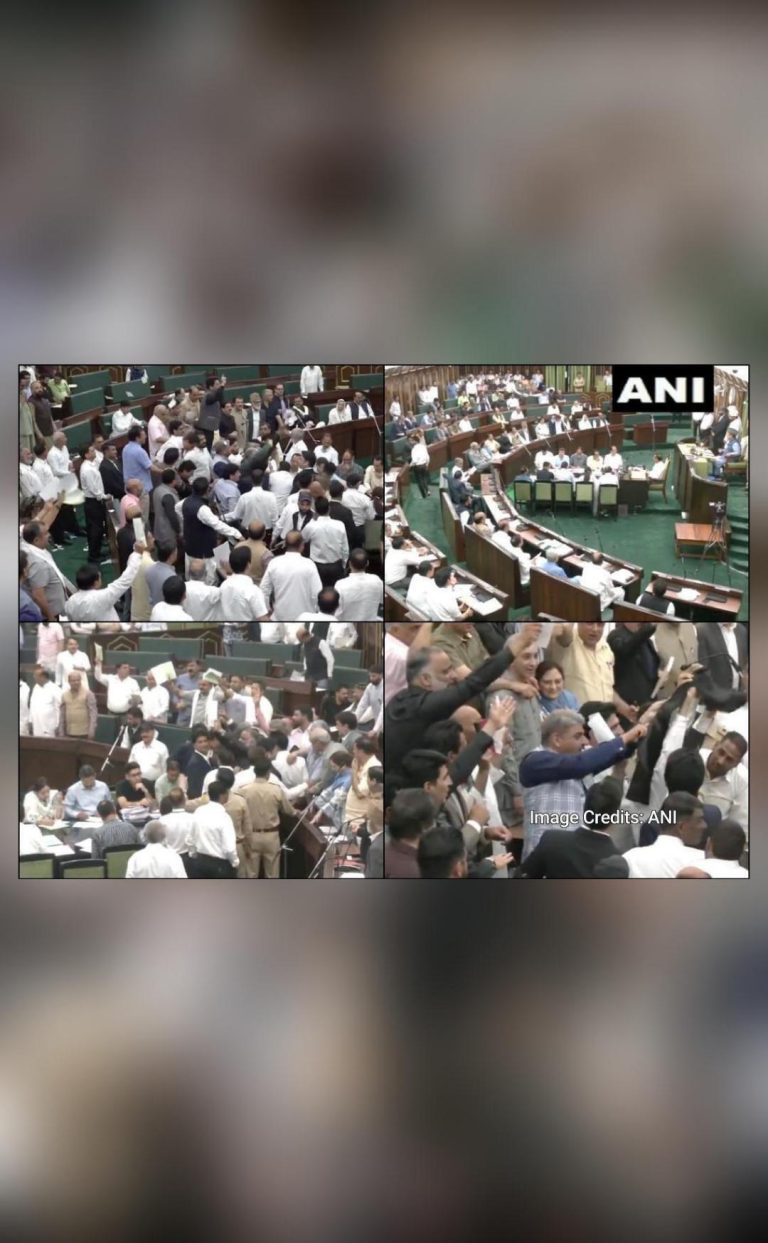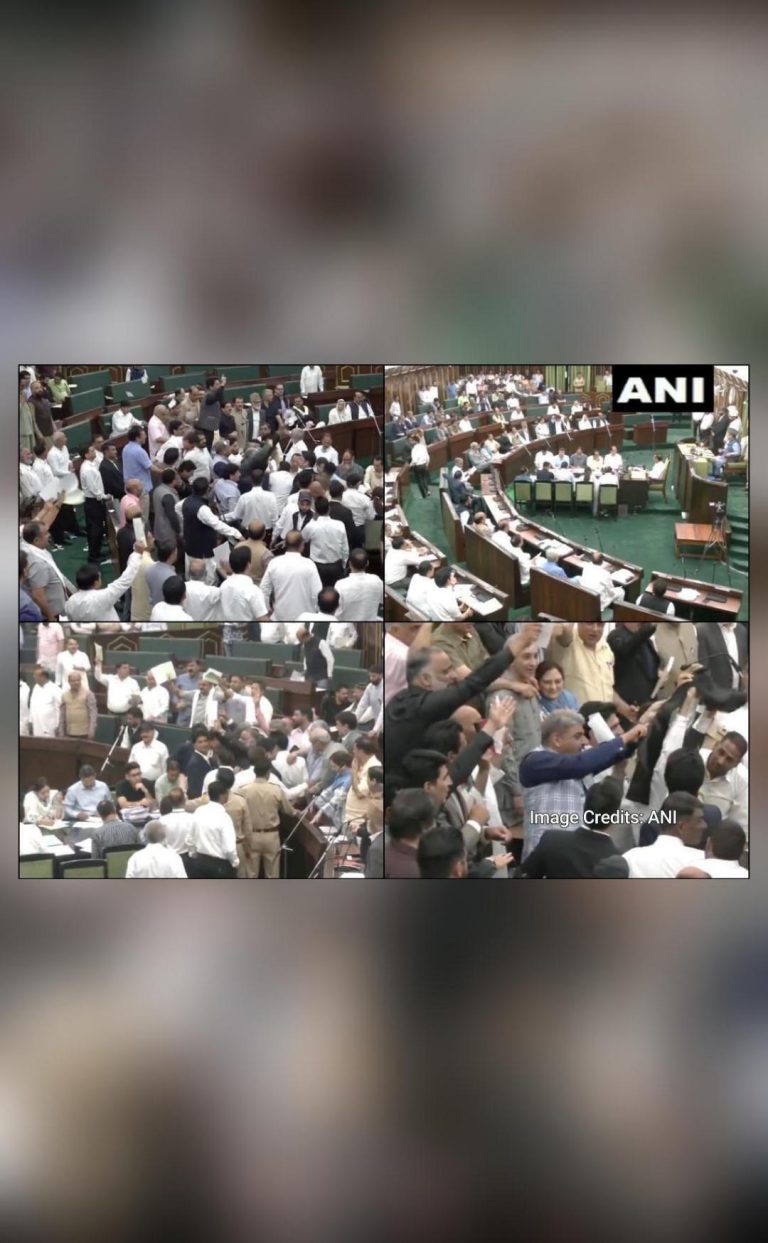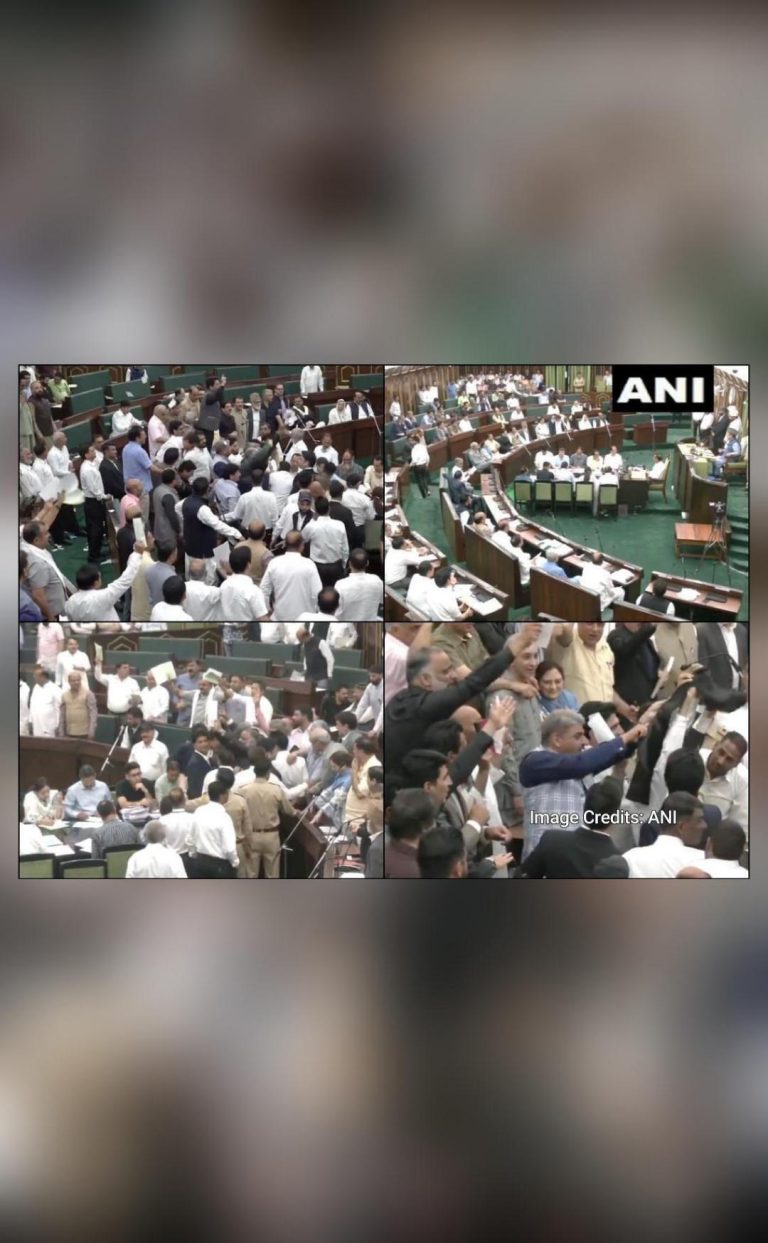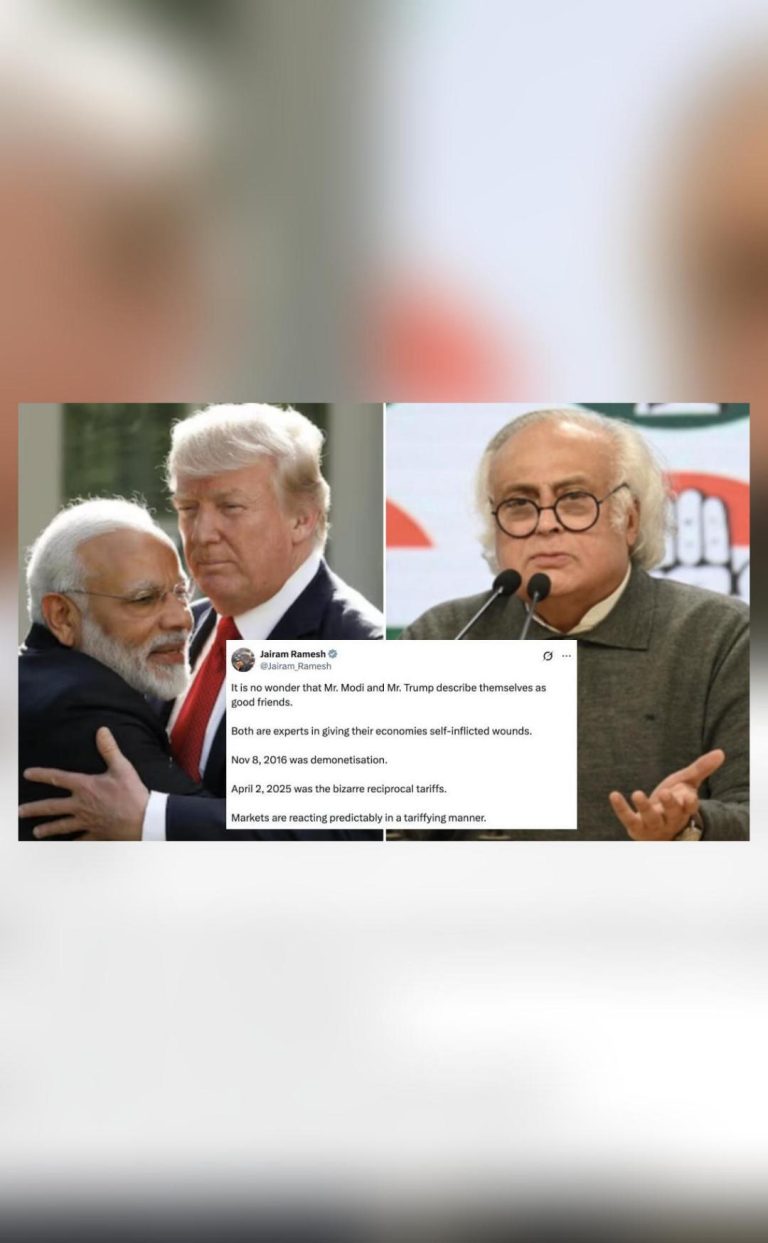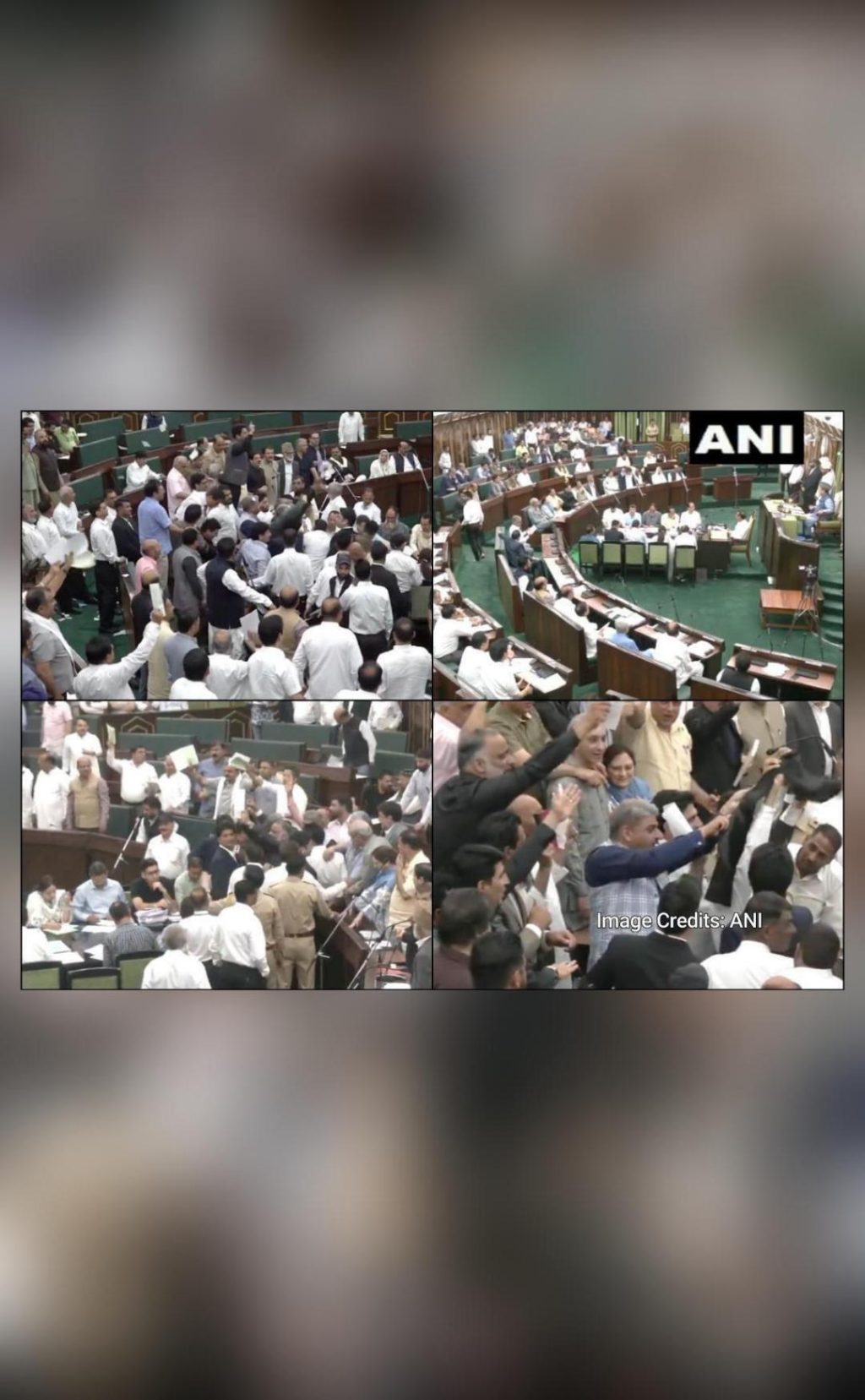
Jammu & Kashmir Assembly Adjourned Amid Uproar over Waqf Act
The Jammu and Kashmir Assembly on Monday witnessed a massive uproar after Speaker Abdul Rahim Rather denied an adjournment motion on the Waqf Act, following which the House was adjourned. The development comes at a time when the state is still reeling from the aftermath of the abrogation of Article 370 and the subsequent reorganization of the state into two union territories.
The National Conference MLAs had moved a motion to adjourn the Question Hour to discuss the Waqf Act, which has been a contentious issue in the state for a long time. However, their efforts were thwarted by the Speaker, who refused to grant the adjournment motion.
The National Conference MLAs, led by their leader Omar Abdullah, were adamant that the Waqf Act needed to be discussed in the House, claiming that it was a matter of great importance for the people of the state. They argued that the Act, which deals with the management and administration of Waqf properties, was being misused by the government and needed to be amended.
However, the Bharatiya Janata Party (BJP) MLAs, who are a part of the ruling alliance in the state, protested the move, demanding that the Question Hour be held as scheduled. They claimed that the adjournment motion was an attempt to disrupt the proceedings of the House and that it was not a valid reason to delay the Question Hour.
The BJP MLAs, led by their leader Ravinder Raina, argued that the Waqf Act was a state subject and that the Centre had no role to play in its administration. They claimed that the opposition parties were trying to create unnecessary controversy over the issue and were attempting to disrupt the functioning of the House.
The Speaker, Abdul Rahim Rather, refused to grant the adjournment motion, citing that it was not a valid reason to adjourn the House. He claimed that the issue was not of great importance and that it could be discussed at a later time.
The National Conference MLAs, however, were not satisfied with the Speaker’s decision and staged a walkout from the House in protest. They were joined by other opposition parties, including the Peoples Democratic Party (PDP) and the Congress, who also protested the Speaker’s decision.
The development comes at a time when the state is already facing a lot of tension and uncertainty. The abrogation of Article 370 and the reorganization of the state into two union territories has led to a lot of resentment among the people of the state, and the government is struggling to maintain peace and order.
The Waqf Act is a sensitive issue in the state, and the government’s decision to amend it has been met with a lot of resistance from the opposition parties. The Act deals with the management and administration of Waqf properties, which are considered to be sacred trusts for the Muslims.
The government claims that the amendment to the Waqf Act is necessary to bring it in line with the Centre’s laws and to ensure that the properties are managed and administered in a transparent and accountable manner. However, the opposition parties claim that the amendment is an attempt to undermine the rights and interests of the Muslims in the state.
The Jammu and Kashmir Assembly has been adjourned several times in the past over various issues, including the abrogation of Article 370 and the reorganization of the state into two union territories. However, this is the first time that the House has been adjourned over the issue of the Waqf Act.
The development is likely to escalate the tensions in the state, and it remains to be seen how the government will address the concerns of the opposition parties. The state is already facing a lot of challenges, including a lack of peace and order, and the government will need to take steps to address these issues if it wants to maintain stability in the state.
